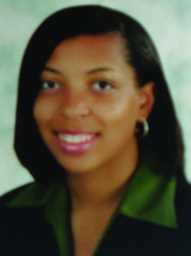A Guide To Surviving Your Board Exams
 Podiatric medicine, like many other health professions, requires students to meet certain competencies in order to practice. A multitude of examinations evaluate various skills and knowledge. The examinations range from subject matter tests students take while they are in school to more comprehensive examinations they take at different stages during training in order to become licensed practitioners. Lastly, board qualification and board certification examinations further attest to a clinician’s knowledge and education.
Podiatric medicine, like many other health professions, requires students to meet certain competencies in order to practice. A multitude of examinations evaluate various skills and knowledge. The examinations range from subject matter tests students take while they are in school to more comprehensive examinations they take at different stages during training in order to become licensed practitioners. Lastly, board qualification and board certification examinations further attest to a clinician’s knowledge and education.
Although the format and requirements for passing board examinations have changed in recent years, the strategies and tools podiatrists use to pass the tests remain unchanged. For podiatry students, sitting for board examinations is not a primary priority. However, mastering good study skills and habits early on is essential to passing the exams in the future. Adhering to a study routine and discovering your optimal “learning style” are important. This also includes determining when you learn best and are most alert. Often, test-takers can choose what time of day they will take the board exams and this may increase their likelihood of success. The more you are able to identify your individual learning strengths, the better off you will be later in your career.
In addition, school is an excellent time to retain long-term knowledge because many professors are actively involved on podiatry board development committees. Some are even authors of chapters or complete textbooks that academic boards recommend as study aids. Professors are an invaluable resource. They know what types of questions are on the exams and what topics frequently appear on examinations. Pay close attention in their classes and keep all of the learning materials they distribute.
Another important factor in preparing for board examinations is the choice of post-graduate education. As a podiatry resident, you will be extremely busy. Often, the emphasis is on completing the physical work and learning how to do surgical procedures. Residents should take advantage of academic meetings and national conferences that are usually offered at a discounted rate for residents, or can be paid for using allotted continuing medical education (CME) funds from their employer. Many of the conference lecturers serve on the committees that review and write questions for the boards. It is also a good idea to subscribe to academic journals and read these in your limited spare time.
Stay academically sharp during residency and do not let your mental acuity from school decline. It is much easier to maintain test-taking and study skills than it is to try to relearn them. It is a good idea to take the American Board of Foot and Ankle Surgery and American Board of Podiatric Medicine in-training exams during residency. Although the questions will not be identical, you will become familiar with the format and it will help build stamina for the “real thing.”
One may take board qualification examinations near the conclusion of residency. However, you may be in practice for a substantial amount of time before taking board certification examinations. Some practitioners spend the majority of time on patient care and administrative tasks, and little time doing academic activities. If this is the case, it may be a good idea to become affiliated with a residency program. It is a symbiotic relationship in which residents can learn from you and you can brush up on your academic knowledge. Volunteer as an attending, give lectures and attend the program’s didactic sessions.
Although hardback texts are cumbersome, I advise you to keep study materials and textbooks readily available to study, or obtain electronic copies. Organization and meticulous medical record keeping for every patient are paramount as one may have to submit these as part of the board process. Reserve funds for attending CME conferences, board preparation courses and for purchasing new editions of textbooks. Take the practice tests that are offered on the organizations’ websites and take note of the topics that the tests will cover. It may be a good idea to condense the topics into an outline format so you are not juggling back and forth between references. Ensuring adequate preparation will help lead to success.
Various medical boards and licensing agencies heavily emphasize continuing education. Learn good study habits during school and exponentially increase your podiatry-specific knowledge during residency and fellowship. Try to maintain these skills and stay abreast of new concepts and trends as a clinician.
Dr. Ryans is a graduate of the SSM DePaul Residency Program in St. Louis and is now in practice.











